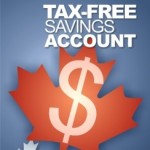 Virtually everyone looks forward to retiring as early in life as possible. The idea is to have as many years as possible to enjoy the many things that had to be put off during the working years. However, far too many people don’t take the steps necessary to ensure they’ll have enough money to live comfortably after retiring. There are five distinct ways people can ruin their chances of retiring in comfort.
Virtually everyone looks forward to retiring as early in life as possible. The idea is to have as many years as possible to enjoy the many things that had to be put off during the working years. However, far too many people don’t take the steps necessary to ensure they’ll have enough money to live comfortably after retiring. There are five distinct ways people can ruin their chances of retiring in comfort.
retirement savings
 Everyone needs to save money for retirement, but some people are much better at it than others. Some people struggle financially and can’t save much at all. But other people just aren’t doing the right thing. They could have money to save and invest, but they’re not making the most of it. Or perhaps they are trying to save for retirement, but they’re not going about it in the right way. In fact, many people are approaching their retirement planning poorly. If you want to be smarter than those who are getting it wrong, there are several things you should be doing.
Everyone needs to save money for retirement, but some people are much better at it than others. Some people struggle financially and can’t save much at all. But other people just aren’t doing the right thing. They could have money to save and invest, but they’re not making the most of it. Or perhaps they are trying to save for retirement, but they’re not going about it in the right way. In fact, many people are approaching their retirement planning poorly. If you want to be smarter than those who are getting it wrong, there are several things you should be doing.
Start Early
One of the biggest mistakes that many people make is to start saving for retirement too late. The earlier you start, the more you can save and the more you can grow your money. If you’re able to start saving for retirement when you’re in your 20s, you’re already doing better than many other people. You don’t have to have a lot of money to put aside. Even a small amount is a useful contribution toward your retirement funds. Although your 20s and 30s are a time when you want to enjoy yourself, it pays to be sensible and think of the future too.
 Traditionally, most Canadians thought that taking advantage of the immediate tax savings of a Registered Retirement Savings Plan (RRSP) for their retirement savings was the smartest choice when it came to saving for their retirement. But now that the Tax Free Savings Account (TFSA) has been around for a while, some people, including tax specialists and personal finance planners beg to differ. Why? Here are some reasons:
Traditionally, most Canadians thought that taking advantage of the immediate tax savings of a Registered Retirement Savings Plan (RRSP) for their retirement savings was the smartest choice when it came to saving for their retirement. But now that the Tax Free Savings Account (TFSA) has been around for a while, some people, including tax specialists and personal finance planners beg to differ. Why? Here are some reasons:
1) The TFSA has perks that the RRSP just doesn’t have. For one, the funds you contribute to a TFSA have already been taxed, and because any earnings you get from your investments are not taxable ever, this is a great vehicle for retirees who want to access funds from their investments with absolutely no tax consequences. Although the RRSP allows you to reduce your income tax payable right now, you have to also consider the future – when you are older and ready to retire – do you want to be paying a lot of tax at that time? Just because you may be retired, it doesn’t necessarily mean that your income will be really low, and it’s likely that the tax rates will continue to increase in the future, so you may end up paying just as much or more tax later. So, when deciding how to save for your retirement, you want to consider not only the present, but also the future consequences.
2) The TFSA won’t likely be around forever. As many other government initiatives have come and gone over the years, it is very likely that the TFSA won’t be here forever, so it’s a good idea to take advantage of this account while it’s still around. If you are in the position to max out your contributions, then by all means, consider it. You also have to understand that you should be treating this account as an investment and not a simple savings account – meaning in order to maximize your potential earnings, and therefore benefit from the tax savings, you should be investing in something that can earn you more than the 1 or 2% interest rate on the regular savings accounts.
 Have you ever heard anybody tell you that they have just built their emergency fund? If you have, then did you ever ask them what an emergency fund actually is? I ask this because most people that I talk with have no clue what an emergency fund is or why it is important to their financial future.
Have you ever heard anybody tell you that they have just built their emergency fund? If you have, then did you ever ask them what an emergency fund actually is? I ask this because most people that I talk with have no clue what an emergency fund is or why it is important to their financial future.
What you need to know is that an emergency fund is where you save money for emergencies only. For example, losing your job would be considered an emergency. This is also the reason why an emergency fund should be at least 6 months of your total monthly expenses. Now, I know that saving this much money could be rather difficult for you but the nice thing about having it is that it will make the rest of your life that much easier. Trust me, everybody that has a 6 month emergency fund is stress free and on their way to a successful financial future.
Half of non-retired Canadians say they plan to retire by age 65 and expect Canada Pension Plan (CPP) to fund part of their retirement, according to a recent Leger Marketing survey for H&R Block
Canada. But less than one-third actually know how much to expect from CPP every month.
The same group of Canadians listed Canada Pension Plan, Registered
Retirement Savings Plans (RRSPs) and Old Age Security (OAS) as the top three
ways they planned to fund their retirements.
“Canadians who are not retired yet may be relying too much on CPP or Old Age
Security benefits as part of their retirement plan,” explains Cleo Hamel,
senior tax analyst at H&R Block Canada. “And with the recent changes to OAS,
you will not be able to access that benefit until age 67 if you were born on
or after February 1962.”
